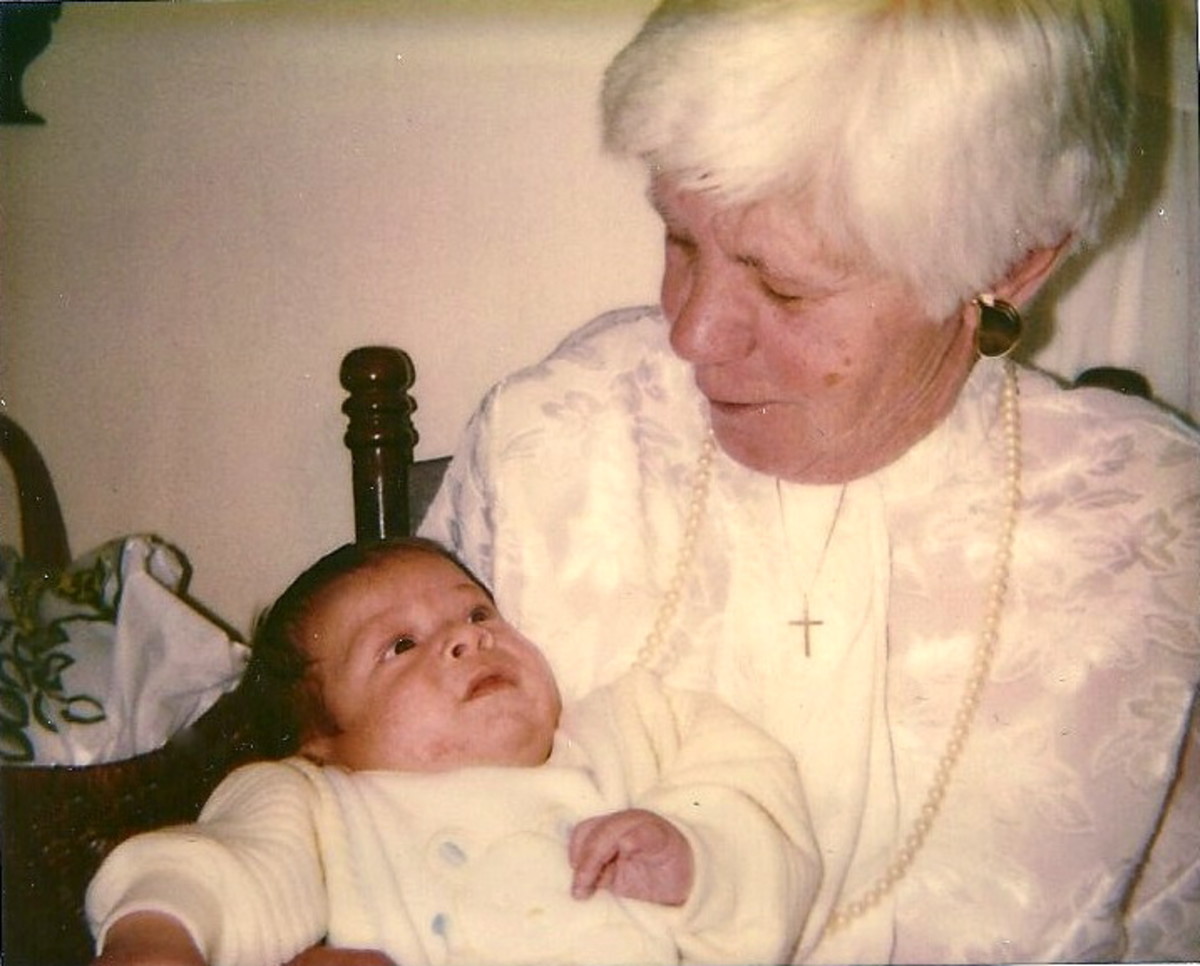Simple, not easy

- With many thanks to my supervisor, who originally provided me with this statement.
I'm going to share a couple of secrets with you, not so much secrets as tips and tricks really - shortcuts, ways to make your life easier. Sound good? There are a few basic insights which I have come to in life, partly through training and partly through experience, which had I known them earlier, would have made my life a whole lot easier. So, here's the first one - it doesn't have to be difficult. That's it, really.
People make several faulty assumptions when approaching the problems in their life and the first one is generally that complicated problems require complicate solutions. There is no denying that mental health issues are extremely complex - there are biological, psychological, social, interpersonal and cultural factors, to name just a few, but the thing is that a lot of behavioral and emotional difficulties we have can be significantly impacted by the use of a few simple techniques. What's the catch - you gotta do 'em - regularly, and that's when the not easy part comes in. Many people fail in their treatment attempts because they give up too soon.
Treatment is 80% perseverance - now that doesn't mean if something isn't working for you you need to flog it to death, and if something makes you feel worse - stop, but mental health is a lot like physical health - as much as we wish there was a pill that would make us all fit and trim, the reality is you gotta work it and you gotta work at it. People are sometimes out off by techniques that sound simple - after all, by the time you get to a therapist, you're pretty much all out of ideas, you've tried everything you can think of, and probably everything your friends and neighbors can think of too - and aren't therapist supposed to go to school for a really long time (and yes, it is a reeeeeeally long time), so naturally one would expect at least some long words thrown in.
I'm not suggesting that you practice a handful of techniques and all will be right with the world, but even, perhaps especially for people in therapy - therapy does not just take place in a 50 minute session - think of it as a consultation, you need to flesh out the ideas and actually live them. Self help is the name of the game, because who else is going to do it? Let's face it who is more interested in and has your interests at heart than yourself - so you are the perfect advocate for you.




Ok, so now you've waded through the intro and the disclaimer - am I actually going to tell you some of these things? Sure, the first thing is - expand the idea of simple, not easy into your life. Look at the places and people you have trouble with and write down a list of anything you can think of to describe them. Now, put it away until tomorrow. Now, get out your list - your task today is to go through the list and start to group common characteristics until you start to get a sense of where, when and with whom you have the most trouble. Now, get a friend or family member to help you and role play and problem solve your most difficult situations - it's actually kind of fun - make sure to switch roles and be yourself and the person you struggle with. You may be surprised when you play the person you dislike and your friend plays you at how antagonistic your behavior may be - try to feel what the other person might feel, coming from their life in an interaction with you.
By the end of an afternoon and a plate of brownies you not only should have a couple of new strategies to try, but you'll end up with a pretty good idea of how you appear to the other person. This type of exercise, by the way is also excellent for kids who struggle with social skills, anger management and ability to empathize and take another's view, which is particularly difficult for those with Autism, Aspergers, Non Verbal Learning Disability and Pervasive Developmental Disorders. That's it, really - if you can shift your thinking to simplify things, anticipate difficulties and practice new coping skills before you need them I absolutely believe and have seen that people's lives change.
A slight digression about anticipating behaviors and concrete thinking in kids. I've worked in residential and school setting and have learned some wonderful - sometimes funny, sometimes touching things from emotionally disturbed kids and what they do. One day I was sitting outside in a playground with a little guy of about 6 who had significant anger, impulsivity and aggression problems. His sibling began to tease him and, inevitably he became upset and started moving towards her with some less than noble intentions. He then got a gleam in his eye, sat down on the grass and began to remove his shoes. I was watching him out of the corner of my eye, so as not to give too much attention to the situation, while making sure he was in about arm's reach. He turned to see if I was watching, I feigned disinterest and began poking in the sand. He slowly lifted his arm, complete with shoe. I tuned slightly and said something to the effect of "dude, please don't throw your shoe at Johnny." He put his arm down and then his eyes began to gleam again- "damn, concrete thinking" I thought and turned towards him "and please don't thrown your other shoe at him either." He looked momentarily crestfallen, but then caught my eye and laughed "How'd you know I was going to do that?" he asked, before ambling off to find some other interesting object.

Simple solutions in every area
Simple resources on the web
- Real Simple - Recipes, Organizing, Beauty, Fashion, Holidays
Life Made Easier Every Day with Real Simple – your online source for Real Simple recipes, organizing and cleaning tips, beauty and fashion advice, and ideas for holidays, entertaining, and weddings. - Simple and Sustainable Living
This area deals with simple and sustainable living. Some very trippy little houses on this site. - Simple Living Manifesto: 72 Ideas to Simplify Your Life | Zen Habits
- The Simple Living Network
Providing Resources, Examples & Contacts For Conscious, Simple, Healthy & Restorative Living. - Home - Alternatives for Simple Living
Alternatives for Simple Living

More tips to simplify
..or reward

Bribe

Sometimes I have to laugh at myself
Luckily I am fairly easily amused and so find time to giggle at myself on a fairly regular basis. So, there I am spouting away about how things don't have to be difficult when I decided to take break. I'm not much on sewing, but I do like to bead, so I decided to start a quick project (yea, right). Anyhow, in my stack of beads I spied a new toy - now those of you that sew are going to laugh - a needle threader - you know one of those little metal type things with a piece of thin wire attached (you see why I don't design these things).
Now a needle threader, or whatever they are called is one of those interesting things - it's just complex enough that it looks really cool to someone who has no idea, but is simple enough that if you know much about sewing, you know exactly what it is......so, you don't really want to ask, um, what exactly is this? Besides, I knew what it was, just not how to work it. Being a firm believer in "if I can't figure it out I don't want to play with it", I messed around a bit. There's really not much to the design, so how hard can it be, I threaded it & pushed it through the needle, but couldn't for the life of me get it right.
Then I deigned to look at the instructions. Ok, I know you're laughing - yes, it is really easy - you just put the wire through the needle first - aha!! As I said, I'd tried to figure out all these really complicated ways of doing it - and, um...it's not that hard. So I really did have to giggle.
The reason I bring this up - aside from the simple, not easy thing is that I did another thing, which parallels one of the more frequent parenting mistakes - and one which drives many parent's quite batty - confusing rewards and bribes or putting the cart before the horse. I wanted to get straight to getting it to work, without figuring out how. We often expect kids to absorb social more's and graces by osmosis, mostly because it's such a long time ago since we learned it that now it just seems intuitive - I mean, after you drive a stick shift for 20 years, do you even think about which gear you're changing to and why. We forget how complicated seemingly simple actions are. Try writing down step by step - as if you'd just met someone from Mars, how to make a cup of tea (remember - what's a cup?) - it's actually a pretty complex procedure - and that's making tea! We forget that little brains are not as developed as adult brains and simply don't have some of the more abstract and complex thinking we do.
So, back to the cart and horse thing (this works with big people too, by the way). Don't you hate it when you think you're being really democratic and you make an agreement with your kid that, yes they can go to the mall as long as they finish their chores when they get home - wrong!!! Does that ever happen? hardly - if it does, congratulations, you have an internally motivated kid. However, if your kids is like most kids, they will solemnly swear, sign a contract, give away their first born - and they really probably mean it at the time, but life is short and there are many things to do, people to see and then all of sudden it's bedtime - and the chores remain undone.
Now, haven't I been talking all along about positive reinforcement for positive behaviors? Exactly - in that order - behavior then reward, behavior then reward - it doesn't work any other way, so save yourself some time. Sadly enough, there is actual psychological research to prove this (if you were wondering what psychologists do with their time), I'll spare you literature, but there you have it - scientifically proven. The order in which the reward is received is the essential difference between bribes as rewards/reinforcers. In classical conditioning presenting the reward before the behavior is known as pseudoconditioning - and it ain't never going to happen, no way, no how (and a lot of pigeons will validate this).
A bribe is an attempt to get you to do something by buying/giving/promising something so that you do something you don't want to do. That way - it's you who is pushing the kid and they feel, well, I'm only doing this behavior because/when I get the goody and they feel like they're doing you a favor because you are essentially buying desired behavior - too much power for a kid.
When they have to do the behavior to get the goody - it doesn't matter as much whether they want to or not - if they don't want to, they don't get the reward - their decision, if they choose to do the behavior, they get the acknowledgement that it was a good thing to do - and they've decided - which is the first step to building intrinsic motivation - which at the end of the day is what you want.

Voice your choice
Was this information useful?
So, to summarize
To briefly reiterate the above - and again, these techniques won't fix your life, but they probably will make it significantly easier.
1. Don't look for difficulties, sometime a simple solution will do or difficult problems don't have to have difficult solutions.
2. Simple, not easy. They key to change is awareness, predicting and practicing for difficulties clarity - about what you want, about who you are, about what you expect and what that should look like - in detail, and consistency.
3. If you're going to use behavior modification techniques, which are really effective and simple, make sure you do it the right way or you'll be whistling in the wind so to speak. Behavior then reward, behavior then reward.
4. Laugh at yourself, let's face it, we all do some pretty silly things - better to laugh at yourself and make a mental note than load yourself down with guilt and self recrimination. We all mess up - what differentiates us is whether we see messing up as failure, or as a learning experience and opportunity to try again. See, simple, huh?











